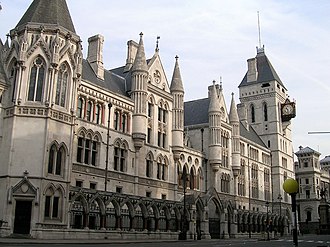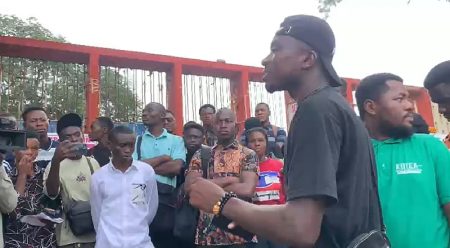The Case of Yaw Asare: A Detailed Account of Theft and Vandalism at the Obetsebi Lamptey Overpass
Yaw Asare, a 48-year-old head porter residing at Kwame Nkrumah Circle, found himself entangled in legal proceedings at the Dansoman Circuit Court. The charges against him stemmed from an incident involving the destruction and theft of six metal guardrails at the Obetsebi Lamptey Overpass in Kaneshie, Accra. These guardrails, property of the Ghana Highways Authority, were valued at an amount yet to be determined at the time of the court proceedings. The incident, occurring on June 9, 2025, brought Asare before Mrs. El-Alawa Abdul-Bassiit, the presiding judge.
Asare’s initial plea was one of "guilty with explanation." However, the court deemed his explanation inconsistent with the admission of guilt. Consequently, the judge entered a conviction based on Asare’s own plea but deferred sentencing to June 23, remanding him into custody in the interim. The prosecution, led by Adam Alhassan, a resident of Sukura, presented a detailed account of the events leading to Asare’s apprehension.
The Obetsebi Lamptey Overpass, a relatively new construction, had become a target of theft. Shortly after its completion, it was discovered that several metal guardrails, secured by offset blocks, had gone missing. Authorities, alerted to the thefts, implemented surveillance measures to monitor the area. This vigilance proved fruitful on the night of June 9, around 11:30 pm.
Alhassan and his patrol team encountered a commotion – a mob was assaulting Asare. Intervening swiftly, they rescued him from the crowd’s wrath. Subsequent investigations at the scene revealed that Asare had indeed dislodged six metal guardrails from their supporting offset blocks. Apprehended along with the incriminating evidence – the stolen guardrails and his shifting spinner tool – Asare was handed over to the police.
During interrogation, Asare confessed to the crime, stating his intention to sell the stolen metal to scrap dealers. This admission corroborated the evidence gathered at the scene. However, the exact value of the damaged and stolen metal remained to be ascertained, with ongoing efforts to determine the precise financial impact of Asare’s actions. This detailed account of events paints a clear picture of the crime, the subsequent investigation, and the judicial process initiated against Yaw Asare.
The incident highlights the vulnerability of public infrastructure to theft and vandalism, necessitating proactive measures such as surveillance and community involvement to protect these valuable assets. Asare’s case serves as a stark reminder of the legal repercussions of such actions. The deferred sentencing allows time for a thorough assessment of the damages and a considered judgment on the appropriate punishment.
The meticulous documentation of the case by the Ghana News Agency (GNA) ensures transparency and public awareness, contributing to broader conversations about public safety, the protection of infrastructure, and the effectiveness of law enforcement in addressing these concerns. The incident also underscores the importance of community vigilance and the role of citizens in reporting suspicious activities to the authorities.
Further, the case exemplifies the due process of law, demonstrating how investigative procedures, evidence gathering, and judicial proceedings unfold in response to criminal acts. The court’s decision to convict Asare based on his own plea, while also considering his explanation, underscores the principle of fairness within the legal system. The remand period before sentencing likely allows time for a pre-sentencing report, which can provide the court with a more comprehensive understanding of Asare’s circumstances and inform a just and appropriate sentence.
This incident represents a microcosm of the challenges faced by urban areas grappling with petty crime and its impact on public infrastructure. The theft of metal components, driven by the scrap metal trade, poses a significant threat to public safety and incurs substantial costs for repairs and replacements. The Obetsebi Lamptey Overpass incident serves as a case study for analyzing the effectiveness of preventative measures and the importance of community engagement in tackling these issues.
Finally, the detailed narrative of Yaw Asare’s case sheds light on the human element within the criminal justice system. While the focus remains on the crime and its consequences, the account also reveals the circumstances of the accused – a head porter struggling to make a living. This provides a nuanced perspective, prompting consideration of the socio-economic factors that may contribute to such acts of desperation. While by no means excusing criminal behavior, understanding these factors can contribute to developing more effective strategies for crime prevention and rehabilitation.














